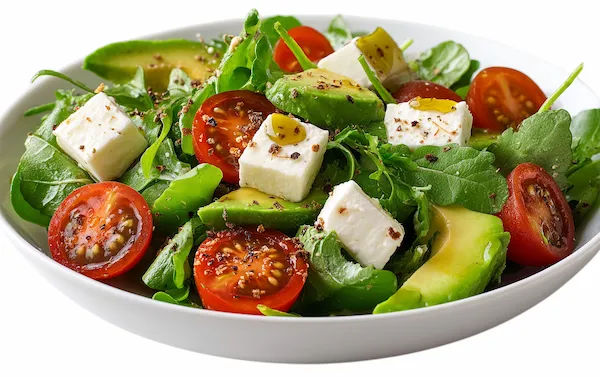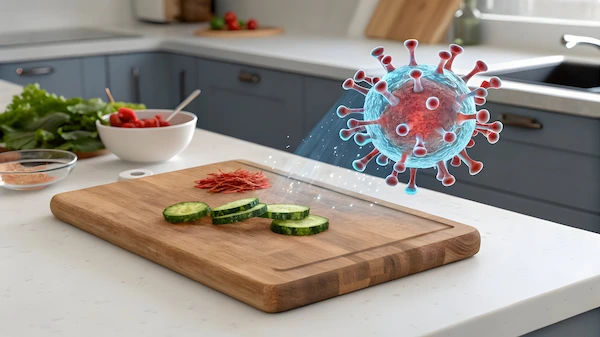Guide to How Get Kids Eat Vegetables Healthy Foods
Unlock the secrets to stress-free mealtimes! Our guide provides practical tips and fun ideas to help your kids love eating vegetables and healthy foods. Get them to eat their greens without a fuss!

.webp?tr=q-80,f-webp,w-350,dpr-2,c-at_max 700w)
Introduction
If the dinner table has become a negotiation table where broccoli is the main point of contention, you are not alone. The challenge of getting kids to eat vegetables is a universal parenting experience. It’s frustrating, worrying, and can leave you questioning your culinary skills. But what if we told you that your child’s refusal isn’t about defiance, but biology? Understanding the "why" is the first step toward a solution. This comprehensive guide is designed to move beyond the short-term tricks and help you foster a genuine, positive relationship between your child and healthy foods. We'll explore the science behind picky eating, establish golden rules for success, and provide a toolkit of creative, practical strategies—from fun presentations to kid-approved recipes. Our goal isn’t just to get a few bites of carrot down tonight; it’s to cultivate healthy eating habits that will last a lifetime. Let’s transform mealtime from a battle of wills into an adventure in eating.
Understanding Your Child's Palate: It's Not Just Pickiness
Before we dive into strategies, it's crucial to reframe the problem. Labeling a child as "picky" can create a power struggle. Often, their aversion is rooted in natural developmental stages.
The Science of Taste: Why Kids Detect Bitterness More
Children are biologically wired to be cautious about new foods, especially vegetables. They have a higher number of taste buds, making them super-tasters. This means bitter compounds found in cruciferous vegetables like broccoli, Brussels sprouts, and kale are intensely amplified for them. This was an evolutionary advantage—preventing curious toddlers from eating poisonous plants. So, when your child gags at a piece of spinach, it’s a genuine, heightened sensory experience, not just dramatics.
Food Neophobia: The Fear of New Foods
Between the ages of 2 and 6, many children experience "food neophobia," a completely normal fear of trying new things. This is another built-in survival mechanism. Pushing too hard against this fear can backfire, creating negative associations with food. The key is gentle, repeated exposure without pressure—a concept we’ll expand on later.
Consult Top Specialists
The Golden Rules for Stress-Free Veggie Introduction
With this understanding, we can establish three foundational principles that should guide all your efforts.
Rule #1: Patience and Persistence Pay Off
Research consistently shows that it can take between 10-15 exposures to a new food before a child accepts it. This doesn’t mean 15 forced bites. It means seeing the food on their plate, seeing you eat it, or interacting with it in a low-pressure setting. Don’t give up after three tries. Consistency is your most powerful tool.
Rule #2: You're the Role Model (Eat Your Veggies!)
Your actions speak louder than words. If you want your kids to eat vegetables, they need to see you enjoying them enthusiastically. Make a point of eating a variety of colorful veggies yourself and expressing how much you like them. Family meals where everyone eats the same thing are incredibly powerful for modeling behavior.
Rule #3: Create a Positive, Pressure-Free Zone
Bribes ("Eat your peas and you can have ice cream") and punishments create a negative dynamic where vegetables are the obstacle to a reward. Similarly, forcing a child to "clean their plate" teaches them to ignore their own hunger cues. The division of responsibility, a concept by feeding expert Ellyn Satter, is key: You are responsible for what, when, and where food is offered. Your child is responsible for how much and whether they eat it.
Creative Strategies to Make Vegetables Irresistible
Now for the fun part! Here’s how to make vegetables appealing to your little one.
Make It Fun: The Power of Presentation
We eat with our eyes first, and this is especially true for kids.
Idea: Create a "Rainbow Plate" Challenge: Turn eating into a game. Challenge your child to eat a rainbow every week. "Today, let's find a green food (broccoli) and a red food (pepper)!" This educates them on variety and makes it exciting.
Idea: Use Fun Shapes and Dipping Sauces: A plain carrot stick is boring. A carrot stick cut with a crinkle cutter with a side of hummus or yogurt dip is an adventure. Use cookie cutters to create star-shaped cucumbers or bell peppers. Something as simple as a fun plate or food picks can work wonders.
Involve Them in the Process: From Market to Table
When children have a hand in creating their food, they feel a sense of ownership and pride, making them more likely to try it.
Grocery Store Adventures: Let Them Choose: At the store or farmer's market, give your child a choice. "Should we get the green zucchini or the yellow squash today?" This gives them a sense of agency.
Little Chefs in the Kitchen: Age-Appropriate Tasks: Even toddlers can help! They can wash vegetables, tear lettuce, or stir a mixture. Older kids can help chop (with supervision), measure, and even choose a recipe. This investment of time and effort translates into investment in the meal.
"Sneaky" vs. "Visible" Veggies: A Balanced Approach
The "sneaky" method—blending vegetables into sauces, smoothies, and baked goods—is a great way to boost nutrition, especially for particularly resistant eaters. However, it shouldn't be the only strategy. The ultimate goal is for kids to learn to enjoy vegetables in their whole form. Use sneaky recipes to ensure nutrient intake, but continue to offer visible, well-prepared vegetables without pressure alongside them. This dual approach ensures they get the nutrients now while gradually learning to accept the real thing.
Kid-Friendly Recipes That Pack a Veggie Punch
Here are two classic, parent-tested starting points.
Green Monster Smoothies: A Sweet Secret
Blend a handful of spinach (which is mild in flavor) with a frozen banana, a cup of milk (or yogurt), and a few pieces of frozen mango or pineapple. The fruit sweetens and masks the color and flavor of the spinach, creating a delicious, nutrient-dense drink that most kids love.
Veggie-Packed Pasta Sauces and Muffins
A tomato-based pasta sauce is perfect for hiding finely grated or pureed carrots, zucchini, mushrooms, and even onions. For muffins, pureed pumpkin, sweet potato, or even beets can add moisture, sweetness, and a wealth of vitamins.
Navigating Common Challenges and Setbacks
Progress is rarely a straight line. Here’s how to handle bumps in the road.
What to Do When Your Child Absolutely Refuses
Stay calm. If they refuse a vegetable, simply say, "Okay, maybe another time," and move on. Don’t cook a separate meal. Ensure there’s at least one "safe" food on the plate that they like, so they don’t go hungry. The refusal today is just one data point, not a final verdict.
Dealing with Peer Influence and Junk Food
Peer pressure can work in your favor! Invite a friend who is a good eater over for a playdate—kids are often more willing to try foods they see their peers enjoying. As for junk food, adopting a "sometimes food" vs. "everyday food" mentality at home helps kids understand balance without demonizing any food group. If you have ongoing concerns about extreme picky eating affecting your child's growth, consulting a pediatrician or a child nutritionist online with Apollo24|7 can provide personalized guidance.
Quick Takeaways: Your Veggie Victory Checklist
It's Biology: Your child's heightened taste buds and natural neophobia are normal.
Patience is Power: It can take 10-15 low-pressure exposures for acceptance.
Be the Role Model: Your enjoyment of vegetables is contagious.
Make it Fun: Use shapes, colors, and dips to engage their senses.
Involve Them: Kids who cook are more likely to try what they've made.
No Pressure: Your job is to offer; their job is to decide whether to eat.
Balance "Sneaky" and Visible: Ensure nutrient intake while working on long-term acceptance.
Conclusion
The journey to getting your kids to eat vegetables is a marathon, not a sprint. It requires a shift in mindset from short-term coercion to long-term education and exposure. By understanding the developmental reasons behind their reluctance, adopting a patient and positive approach, and getting creative in the kitchen, you can slowly but surely break down the barriers. Remember, every small step—a touched vegetable, a lick of a new sauce, helping to stir the pot—is a victory. The goal is to build a foundation of healthy eating habits that will support their growth, development, and well-being for years to come. Start with one strategy from this guide today, and celebrate the small wins along the way.
Consult Top Specialists
Consult Top Specialists

Dr Aakash Andgi
General Physician/ Internal Medicine Specialist
9 Years • MBBS MD
Bengaluru
Apollo Clinic, JP nagar, Bengaluru

Dr. Vivek D
General Physician
4 Years • MBBS
Bengaluru
PRESTIGE SHANTHINIKETAN - SOCIETY CLINIC, Bengaluru

Dr. Harshendra Jaiswal
General Physician/ Internal Medicine Specialist
12 Years • MBBS , MD (General medicine)
Kolkata
108 DHANA DHANVANTARI Clinic, Kolkata
(25+ Patients)

Dr Syed Mateen Pasha
General Physician
2 Years • MBBS
Bengaluru
PRESTIGE SHANTHINIKETAN - SOCIETY CLINIC, Bengaluru

Dr. Anand Ravi
General Physician
2 Years • MBBS
Bengaluru
PRESTIGE SHANTHINIKETAN - SOCIETY CLINIC, Bengaluru
More articles from Nutritional
Frequently Asked Questions
1. My toddler loved pureed carrots but now refuses them. What happened?
This is extremely common and often part of normal development as toddlers assert their independence. It doesn't mean they'll never eat carrots again. Continue offering them in different forms (roasted, steamed, raw with dip) without pressure, and their interest will likely return.
2. Are frozen or canned vegetables as healthy as fresh for my child?
Yes! Frozen vegetables are often flash-frozen at peak ripeness, locking in nutrients. They are a fantastic, convenient option. When choosing canned vegetables, look for 'no salt added' or 'low sodium' varieties and rinse them before use to reduce sodium content.
3. Should I hide vegetables or be upfront about them?
A balanced approach is best. 'Hiding' veggies in smoothies or sauces ensures they get the nutrients, especially during a particularly picky phase. However, also continue to offer visible vegetables in a positive way to help them become familiar and comfortable with them over time.
4. What if my child only wants to eat one type of vegetable, like cucumbers?
That’s okay! Celebrate that they like one vegetable. Continue offering cucumbers regularly while also introducing other vegetables alongside them. You can try pairing the new vegetable with the liked one (e.g., 'Here are your cucumbers, and here are some new yellow bell peppers that are also crunchy!').
5. How can I tell if my child's picky eating is a more serious problem?
If your child's extreme selectivity leads to significant nutritional deficiencies, weight loss, difficulty swallowing, or if it's accompanied by severe anxiety around food, it may be more than typical picky eating. In such cases, it's important to book a consultation with a pediatrician, which you can easily do through Apollo24|7, to rule out any underlying issues.


